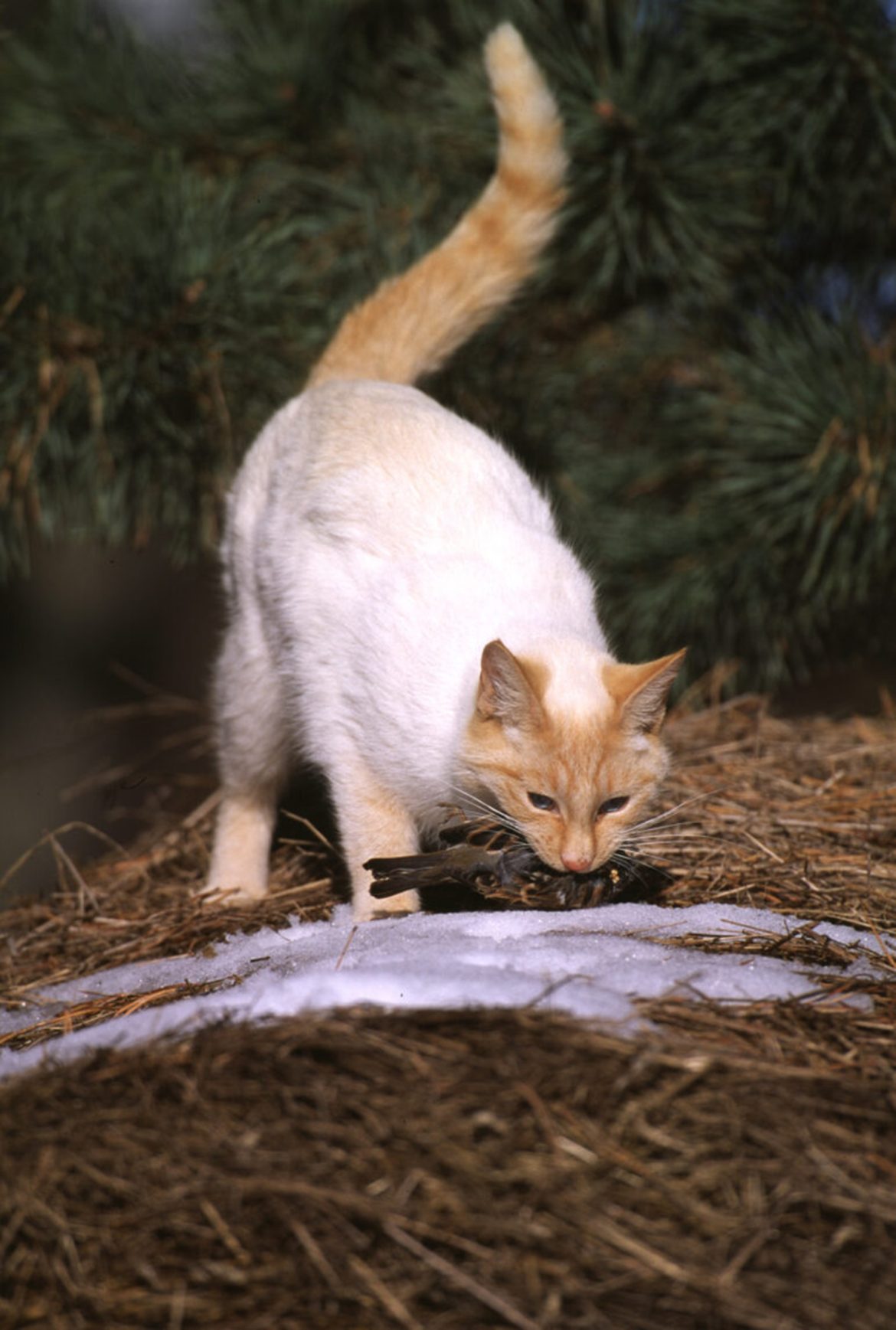
Housecat with a bird. Credit: Dave Kenyon/ Michigan Department of Natural Resources
By Victor Wooddell
Capital News Service
Animal shelters in Michigan are at capacity, even while facing staff and resource shortages.
According to experts, more animals are being abandoned and too few pet owners are having their animals spayed or neutered.
In 2020, adoption rates soared due to pandemic-related stay-at-home orders across the country, according to an article in the journal Frontiers in Veterinary Medicine.
A study by the American Humane Association found a dramatic increase in the rate at which previously adopted animals are being returned.
Shelter directors in Michigan say that results in long waiting lists for kennel space and more abandoned animals, with the aftermath of the COVID-19 pandemic making the situation worse.
Carly Quinn is the director of animal care and control at the Ionia County Animal Shelter. She has been there for seven years.
“This is one of the worst times in animal shelter history,” she said. “For the first time since I’ve been here, we have had to have a waiting list to surrender your pet, especially dogs.”.
Her shelter is also seeing a high number of stray dogs whose owners refuse to claim them. “I’ve never seen fewer people coming to get their dog,” she said.
Much of the problem is due to the pandemic, she said.
“A lot of people got dogs during Covid because they were isolated at home. We were pretty much empty at that time. Now we are seeing 2-, 3-, and 4-year-old dogs that didn’t get fixed and weren’t socialized because everything was shut down,” Quinn said.
People bought pets on impulse and now have to go back to work. “So they have to leave these dogs at home, and now they are having behavioral issues that people weren’t prepared for,” she said.
Her staff is also seeing a high number of puppies being dropped off, she said. “Certain individuals were selling puppies for a livelihood, but now people aren’t buying them anymore. The puppy market has crashed, so now they are surrendering full litters to us.”
Many owners can’t afford spay and neuter fees, which can be high, and veterinary services are expensive due in part to a nationwide vet shortage, she said.
“Dog food has become expensive, cat food has become expensive, everything that goes into owning an animal has become more expensive,” she said.
Homelessness contributes to the problem.
“People are saying that they are homeless, they are living out of their car and can’t have a dog or cat anymore,” she said.
The Ionia shelter has 37 dog kennels and about 200 cats. “Our cat rate is very, very high and it’s constant. Unfortunately they are difficult to shelter because they are so fragile,” she said.
Her staff consists of Quinn, one full-time animal control officer for the county, one full-time adoption coordinator and three part-time kennel techs for both animal control and the shelter.
Katie Snider is the adoptions counselor and capture coordinator at the AuSable Valley Animal Shelter in Grayling.
Its greatest challenge is advocating for spaying and neutering, she said.
“People in our area are impoverished and often can’t afford the cost of the operation. It can cost anywhere from $170 upwards to $500,” she said. “One person told me that they got a quote of $1,000 to get their dog neutered.”
Her staff is working with other shelters in the area to get a low-cost veterinary clinic up and running, she said.
“This would solve a lot of issues with the cat population, especially feral cats that keep having litters every year,” Snider said.
“We need to get our intake numbers down because our organization is overwhelmed – everyone is overwhelmed,” she said.
“We have an intake list, which is always at capacity, so if someone does call I have to say ‘sorry,’” she said. “Right now the wait is at least a couple of months out.”
Not everyone is willing to wait that long.
“People call and threaten to release their pets if I can’t take them. One person threatened to shoot them if we couldn’t take them,” she said.
The AuSable Valley shelter has eight full-time and two part-time staff for 27 dogs and 40 to 50 cats.
Volunteers are needed to walk the dogs, for cleaning and to enrich the lives of the animals, she said.
